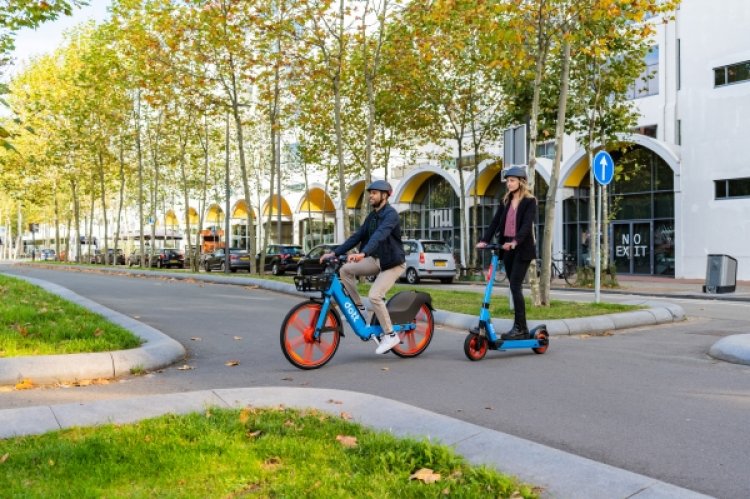European micromobility startup Dott grabs $70 million
Urban mobility startup Dott has raised an extension to its Series B round. Originally announced in the Spring of 2021, the company raised an $85 million Series B round — it was a mix of equity and asset-backed debt financing. And today, the company is adding another $70 million to this round —once again, it’s […]

Urban mobility startup Dott has raised an extension to its Series B round. Originally announced in the Spring of 2021, the company raised an $85 million Series B round — it was a mix of equity and asset-backed debt financing. And today, the company is adding another $70 million to this round —once again, it’s a mix of equity and debt.
Dott is a European micromobility startup that is better known for its scooter-sharing service. More recently, the company also added an electric bike-sharing service in some cities.
abrdn is leading the Series B extension with Dott’s existing investor Sofina. Other existing investors put more money on the table, such as EQT Ventures and Prosus Ventures.
Dott competes with several micromobility startups in Europe. Its most direct competitors are Tier, Lime and Voi. There are quite similar when it comes to pricing and scooters — most of them work with Okai to design their scooters. But they don’t necessarily operate in the same markets.
Right now, Dott covers 36 cities across nine European countries. The company manages 40,000 scooters and 10,000 bikes. While Dott isn’t sharing revenue numbers, the startup processed 130% more trips in 2021 compared to 2020.
Two other differentiating factors between micromobility operators are logistics and regulation. When it comes to logistics, Dott tries to internalize its processes as much as possible. It doesn’t work with third-party logistics providers and it has its own warehouses and repair teams to take care of its fleet.
When it comes to regulation, the company has won several permits to operate in highly coveted markets, such as Paris and London. However, Paris is currently trying to heavily regulate scooter-sharing services in Paris with a new top speed of… 10 km/h (that’s 6.2 mph). There are currently 700 slow zones in Paris with a top speed of 10 km/h.
There are two key takeaways here. First, building a micromobility company requires a ton of capital. It shouldn’t come as a surprise as buying scooters is expensive, charging batteries is expensive and hiring people to make everything run smoothly is expensive.
Second, the regulatory landscape is still evolving and there are still some uncertainties for scooter startups. Dott is diversifying its product offering with electric bikes — and that seems like a smart move. It’s also going to be interesting to see how it plans to optimize battery charging even more to make its service more cost effective.







